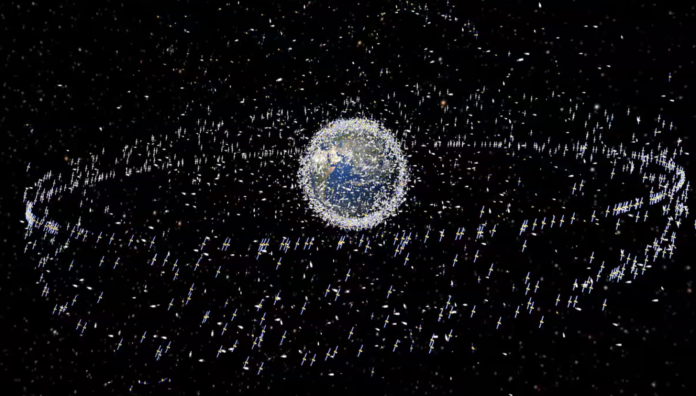This week, the European Space Agency (ESA) will present a Zero Debris Charter to EU space ministers on “junk” orbiting the Earth, amid growing concerns about polluting space, according to Euractiv.
EU ministers responsible for space will sign a new charter in Seville this week, ESA Director-General Josef Aschbacher has announced. He stated that adopting the charter would mean “a commitment to de-orbit the space assets at the end of their lives to clear out outer space.”
The Zero Debris Charter initiative would display a strong commitment towards achieving global leadership in space debris mitigation and remediation.
Space is becoming more crowded every month as major countries, such as China, India, Russia, the United States and the EU, compete for access and space to host their satellites.
Satellites provide important services such as Internet connectivity, secure communication networks for the military, imaging of the Earth and will soon control carbon dioxide emissions from factories.
Aschbacher claims the treaty stipulates that countries “commit when launching the satellites, to de-orbit the space assets at the end of their lives,” starting from 2030.
The Europeans were the first to propose an international treaty to limit space debris. In 2010, the UN published a set of guidelines on space debris mitigation. However, there is no binding agreement on the issue.
According to the European Agency last month, more than 35,140 pieces of debris are currently being tracked, with the number continuing to grow. The United Nations calls the “loss of multiple satellites” due to accumulations of space debris a tipping point that could have a catastrophic impact on the way of life today.
How to de-orbit satellites from their original position in outer space after they reach the end of their service life remains a question. Future technologies must consider how to de-orbit satellites that may not have enough fuel to travel, which could produce small, dangerous debris and cause collisions, while smaller particles could burn up in the atmosphere, the ESA chief noted.
Aschbacher has called on the European Commission to propose a law to encourage the industry to research and develop technologies to safely descend from orbit. The European Commission has announced that it will propose a European Space Law next year to establish rules to define Space Traffic Management (STM) for safe access to space and return from outer space.
The ESA Director-General, who was involved in drafting the proposal, expressed hope that signatures would join “in the coming months,” noting that there would be no deadline for states or industries to sign the document.
Europe can be a champion on this.
Some major aerospace companies have already expressed interest in June in developing the technologies essential for de-orbiting space objects. These include German OHB and French Airbus Defence and Space.
